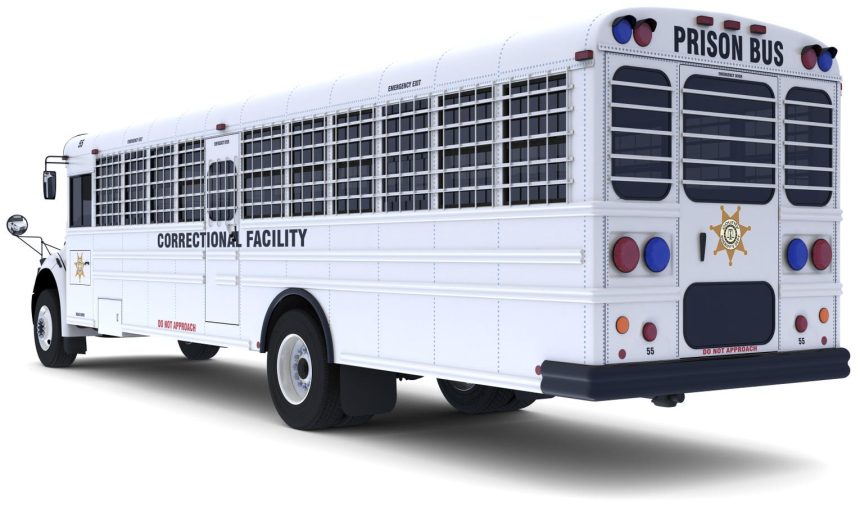When can an eligible prisoner begin to earn First Step Act (FSA) credits?
It seems like a simple question and the federal Bureau of Prisons (BOP) has determined that the prisoner can begin earning credits once they are at their designated facility. For those prisoners who self surrender to prison, many are low and minimum security prisoners, the credits start on the day the person arrived at prison. However, for some prisoners, they are remanded at the time of sentencing and then transported to their designated facility, a process that can take months as prisoners make their way through holdovers and county jails until they reach their final designation. Them arriving at their final designated institution is completely out of their control.
Under the First Step Act law, the BOP initially measures a prisoner’s risk for both recidivism and violence, this is known as a PATTERN score. This is done once the prisoner is at his/her designated facility. To be eligible for the program’s benefit of a reduction in sentence, the prisoner’s PATTERN score must be either minimum or low. Further, if the prisoner is eligible for FSA credits to be applied to reduce their sentence (note: there are 68 crimes that are excluded), he/she can earn 10 days of FSA Earned Time Credits for every 30 days of programming. After the prisoner’s second PATTERN score, usually 6 months after entering prison, they can earn up to 15 days of FSA Earned Time Credits. It can make a huge difference on when the person will be back into the community by weeks, months and years. It is significant.
Some prisoners believe that the credits should start the day they are sentenced, officially beginning their prison term. However, the BOP has stated that credits cannot begin until the prison is at his/her designated facility. This presents a problem for some inmates because they are remanded at sentencing or already in a prison being held without bail until sentencing. Once the sentence is imposed, the BOP has to determine a security level and a prison for designation. After that is determined, a route and schedule to transfer the prisoner, sometimes across the country, could take weeks or months, depriving these prisoners of a chance to earn FSA credits to reduce their sentence. Cases are making their way into federal court to challenge the BOP’s position and some are successful and judges are granting these credits. Despite these victories, the BOP is steadfast in not awarding these credits to other prisoners nor have they made it part of their policy statement.
One prisoner, Austen Yufenyuy who was in federal prison at FCI Berlin (New Hampshire) challenged the BOP’s rule of starting FSA credits only after the prisoner arrived at the institution. Yufenyuy was sentenced and spent months in transit before he got to his designated institution and the BOP denied giving him credits for that time that he was on the road from the courthouse to his final designated institution.
When Yufenyuy got to FCI Berlin he was perplexed as to why he did not receive FSA Earned Time Credits for the time he was in federal custody but before arriving at his designated institution. Yufenyuy filed a lawsuit in New Hampshire stating that his civil rights were being violated and on March 3, 2023, United States Magistrate Judge Andrea K. Johnstone (District of New Hampshire) agreed and ordered that those FSA Earned Time Credits that occurred while in transport should be awarded to Yufenyuy. Soon after, Yufenyuy was released from the BOP. The BOP gave Yufenyuy his FSA credits and he was subsequently released from FBI Berlin. However, the BOP never challenged the judge’s decision on appeal giving the impression that this ruling would apply to all prisoners. That did not happen.
Prisoners are still challenging this practice in various district courts across the country (cases are brought in the district in which the prisoner is held) and winning some times and losing in others.
A case of the federal District of Massachusetts (Vitaly Borker v Warden Bowers, Case No. 1:24-cv-10045-LTS) was recently (May 2024) decided in favor of Borker by U.S. District Judge Leo T. Sorokin. Borker claimed that from the time he was sentenced April 28, 2023, until he landed at his designated facility (FMC Devens just outside of Boston, MA) he should have received FSA credits. The BOP stated that the request should be denied based on the fact that Borker never successfully participated in FSA programming. Judge Sorokin disagreed and ruled that “This position amounts to an end run around the plain language of the FSA.”
Sorokin further wrote, “The FSA requires that [Borker] be permitted to earn time credits when his judgment of sentence enters (as he is then already “in custody awaiting transport” to a designated facility), but the BOP’s regulation prevents him from earning such credits until after his transport when he arrives at the designated facility. This contravenes the command of Congress, something the BOP cannot do.” The Order was given to BOP to award all of his FSA credits from the time he was sentenced, something affecting thousands of federal prisoners and representing millions of dollars in cost savings, something the FSA was supposed to do anyway.
These cases could end up in the Supreme Court, particularly if the BOP would appeal the decisions if they do not agree. The BOP should challenge the ruling just so there is some transparency into their interpretation of the FSA, something that has been a challenge for the BOP. Right now, prisoners look at cases like this and submit administrative remedies hoping the BOP awards the credits as some district judges have ordered. Those are being denied daily and only those prisoners with the funds to take their case to court are getting the credits if the judge signs off. Once again, those who are poor, illiterate or disadvantaged are missing out.
This is an opportunity for the BOP to make an easy policy change by allowing prisoners to officially begin earning FSA credits by simply using the date sentenced rather than the date someone arrives at their designated institution.
Read the full article here
















